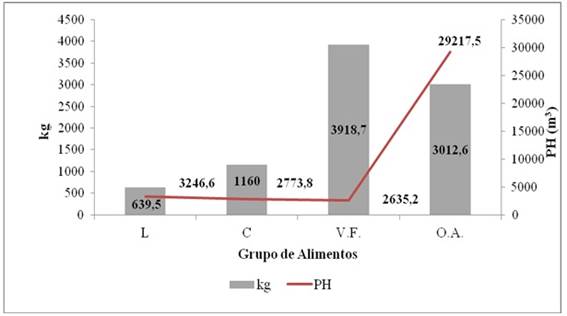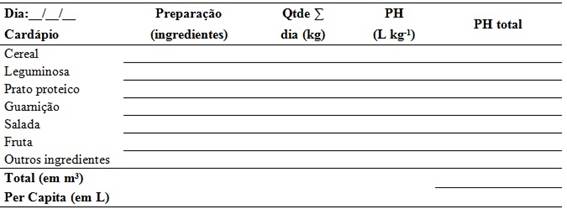Water is a key resource for the production of food and meals. This study evaluated the water footprint (WF) of menus consisting of cereal, legumes, meat, garnish, salad and dessert at a public university in the city of Porto Alegre / RS. Data collection took place between September 2 and 13, 2013. The biweekly menu was assessed to verify the amount of food used for making 1800 meals (lunch and dinner). The size of the food's water footprint was estimated based upon the scientific literature. The data were calculated in absolute frequencies, in percentages and averages. It was found that vegetable products (cereals, legumes, vegetables, and fruits) represented 65.5% of the total raw material in kilograms, but were responsible for only 22.1% of the total WF. Animal products (eggs, meat and chicken) were responsible for 77.9% of the WF. This assessment of the WF of menus identified a daily average per capita of 2099.1 litres per meal, and meat was the largest contributor to this result. Evaluating the water footprint of foods used in menu planning fosters the sustainability of the planet's natural resources and encourages new habits and methods of sustainable food consumption.
ecology; environmental indicators; water use

 Thumbnail
Thumbnail




